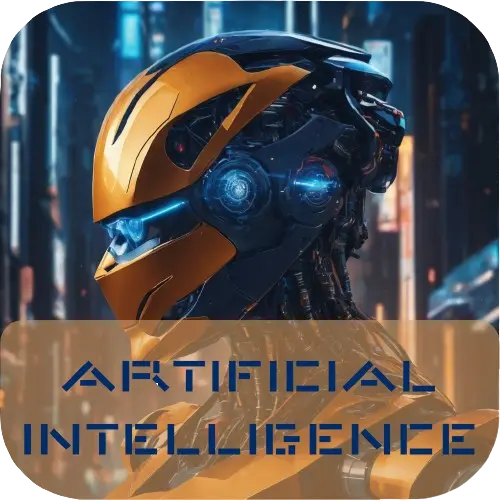The Gavel vs. the Algorithm: AI vs. Human Lawyers in the American Courtroom - A Symphony of Change
The hallowed halls of U.S. courtrooms echo with the familiar symphony of justice, conducted by human lawyers wielding gavel and logic. But on the digital horizon, a new melody rises – the ethereal hum of algorithms, heralding the era of the AI lawyer. This clash of tradition and innovation, silicon and soul, shapes the future of American law, a future brimming with possibilities and brimming with uncertainties.
AI Ascending: The Legal Eagle
Redefined
AI lawyers aren't courtroom gladiators clad in armor; they're tech-savvy wingmen, their brilliance soaring in these realms:
- Legal Research Powerhouse: Forget dusty tomes and endless hours in libraries. AI systems become omnipresent research assistants, their neural networks devouring vast legal databases with insatiable hunger. Relevant rulings and statutes surface in mere seconds, painting a comprehensive legal landscape that empowers lawyers with unparalleled clarity and confidence.
- Contract Draft Mastermind: Drafting contracts often resembles a tedious tango through a minefield of clauses and legalese. AI algorithms become graceful partners, analyzing existing contracts with eagle eyes, pinpointing vulnerabilities, and even composing preliminary drafts tailored to specific needs. Say goodbye to endless redrafts and hello to streamlined efficiency, freeing lawyers to focus on the intricate choreography of negotiation.
- E-Discovery Detective: Mountains of paperwork are the bane of any lawyer's existence. AI transforms into a digital Sherlock Holmes, meticulously sifting through document avalanches, unearthing key evidence with laser-like precision, and organizing everything with the finesse of a master librarian. Lawyers shed the mantle of papercut-wielding warriors and step into the role of strategic commanders, directing their efforts towards crafting winning arguments, not battling paper jams.
- Predictive Analytics Prophet: Imagine peering into the legal future with the accuracy of a seasoned seer. By analyzing the data tapestry of past cases and legal trends, AI can predict case outcomes with surprising accuracy. This transforms legal strategy from a game of chance into a calculated dance, where anticipating legal winds before they even blow becomes the key to navigating the courtroom with the confidence of a seasoned sailor charting a course through uncharted waters.
The Human Touch: Justice Anchored in
Humanity
But while AI's capabilities dazzle, American law thrives on more than just cold calculations. The human touch – critical thinking, emotional intelligence, the unwavering compass of ethics –
remains the beating heart of justice. Here's where human lawyers truly
shine:
- · Strategic Soaring: AI can analyze data, but it can't craft creative arguments when faced with the unexpected twists and turns that legal narratives often take. A skilled lawyer's expertise in legal strategy and courtroom tactics remains the lifeblood of winning cases. Imagine facing a legal chess match where human intuition outmaneuvers the cold logic of algorithms, where unforeseen obstacles become springboards for strategic triumphs, and the courtroom transforms into a stage for legal artistry.
- Client Empathy Compass: AI lacks the ability to build rapport with clients, understand their anxieties, or make ethical decisions based on human values. Lawyers provide the crucial empathetic compass that navigates the emotional currents of legal battles. Imagine clients finding not just a legal counsel, but also a trusted confidante, a compassionate guide through the emotional labyrinth of the legal system. This human connection becomes the bridge that fosters trust, inspires hope, and empowers clients to face legal challenges with newfound strength.
- Negotiation and Persuasion Maestro: From brokering delicate settlements to swaying juries with passionate arguments, persuasion is the art form of the courtroom. Negotiation relies heavily on human skills like communication, active listening, and the nuanced ability to read the room. While AI can provide data-driven insights, it's the human lawyer who translates them into compelling arguments that resonate with both minds and hearts. Imagine transforming legal facts into emotional resonance, swaying the tide of the case with the eloquence of a seasoned orator, and winning not just verdicts, but also the hearts and minds of those within the courtroom walls.
Collaboration: The Golden Bridge to the Future
The future of U.S. law isn't about AI replacing human
lawyers; it's about forging a golden bridge of collaboration, where technology amplifies human capabilities instead of
replacing them. Imagine this dynamic duo in action:
- · AI-Powered Legal Eagles: Lawyers could leverage AI research assistants to identify relevant case law in seconds, freeing up time for strategic analysis and client interaction. Imagine the efficiency boost – from legal research to legal strategy in a single leap, lawyers transformed into legal juggernauts with time to truly strategize and connect with their clients. This fusion of human expertise and AI-powered research unleashes new possibilities for legal excellence.
- Personalized Legal Justice: AI can help lawyers tailor their services to individual clients' needs. Imagine legal advice customized to your specific situation, powered by AI analysis of your unique circumstances. This
Think of AI lawyers as sophisticated wingmen in the courtroom, not courtroom gladiators. Their wings flap in the realm of tasks like:
- Legal Research Powerhouse: Imagine scanning the sprawling Library of Congress in seconds. AI systems do just that, analyzing vast legal databases to identify relevant rulings and statutes with laser-like precision. No more late nights buried in dusty tomes - lawyers can be confident they have the most comprehensive legal picture.
- Contract
Draft Mastermind: Drafting contracts can be a tedious dance
of clauses and legalese. AI algorithms waltz through this process, analyzing
existing contracts, flag potential pitfalls, and even generate preliminary
drafts tailor-made to specific needs. Say goodbye to endless redrafts and hello
to streamlined efficiency.
- E-Discovery
Detective: Mountains of paperwork are the bane of any lawyer's existence.
AI swoops in like a digital Sherlock, sifting through mountains of documents,
unearthing key evidence, and organizing everything with meticulous precision.
Lawyers can focus on strategy instead of paper cuts.
- Predictive
Analytics Prophet: By analyzing historical data and legal
trends, AI can peer into the future with surprising accuracy. Predicting case
outcomes becomes less akin to a crystal ball and more like informed
strategizing. Imagine knowing the legal winds before they even blow.
The Human Touch Remains the Heartbeat of
Justice:
But
while AI's capabilities are impressive, it's crucial to remember that American
law thrives on more than just data-crunching. The human touch - critical
thinking, emotional intelligence, ethical grounding - remains the heartbeat of
justice. Here's where human lawyers soar:
- Strategic Soaring: AI can analyze data, but it can't craft creative arguments in the face of unexpected twists. A skilled lawyer's expertise in legal strategy and courtroom tactics remains the lifeblood of winning cases. Imagine facing a legal chess match where human intuition outmaneuvers mere algorithms.
- Negotiation
and Persuasion Maestro: From settling disputes to
swaying juries, persuasion is the art form of the courtroom. Negotiation relies
heavily on human skills like communication, active listening, and reading the
room. While AI can provide data-driven insights, it's the human lawyer who
translates them into compelling arguments that move both minds and hearts.
Imagine turning legal facts into emotional resonance.
Collaboration - The Golden Bridge to the
Future:
The
future of U.S. law isn't about AI replacing human lawyers; it's about building
a golden bridge of collaboration. Think of AI as a powerful tool that amplifies
human capabilities, not replaces them. Here's how this dynamic duo might dance:
- AI-Powered Legal Eagles: A lawyer could leverage AI research assistants to identify relevant case law in seconds, freeing up time for strategic analysis and client interaction. Imagine the efficiency boost - from legal research to legal strategy in a single leap.
- Personalized Legal Justice: AI can help lawyers tailor their services to individual clients' needs. Imagine legal advice customized to your specific situation, powered by AI analysis of your unique circumstances. This paves the way for a more accessible and personal legal experience.
- Democratizing
Justice for All: AI-powered legal tools can make legal services more affordable
and accessible for the average American. Imagine chatbots providing preliminary
legal advice or AI-driven platforms simplifying common legal tasks. This opens
the door to a more equitable legal landscape.
Challenges and Concerns - The Clouds on the
Horizon:
While the future of AI in U.S. law holds immense promise, like any legal drama, it also has its plot twists:
- Bias and Discrimination: AI algorithms are only as good as the data they're trained on. Biased data can lead to discriminatory outcomes in legal cases. Ensuring fairness and mitigating bias will be crucial as AI plays a bigger role in the courtroom. Remember, justice shouldn't be programmed with prejudice.
- Ethics and
Transparency: The use of AI in legal decision-making raises ethical concerns.
How can we ensure transparency and accountability when algorithms are involved?
Remember, justice demands not just results, but also a clear line of reasoning.
Get Subscription for more news













